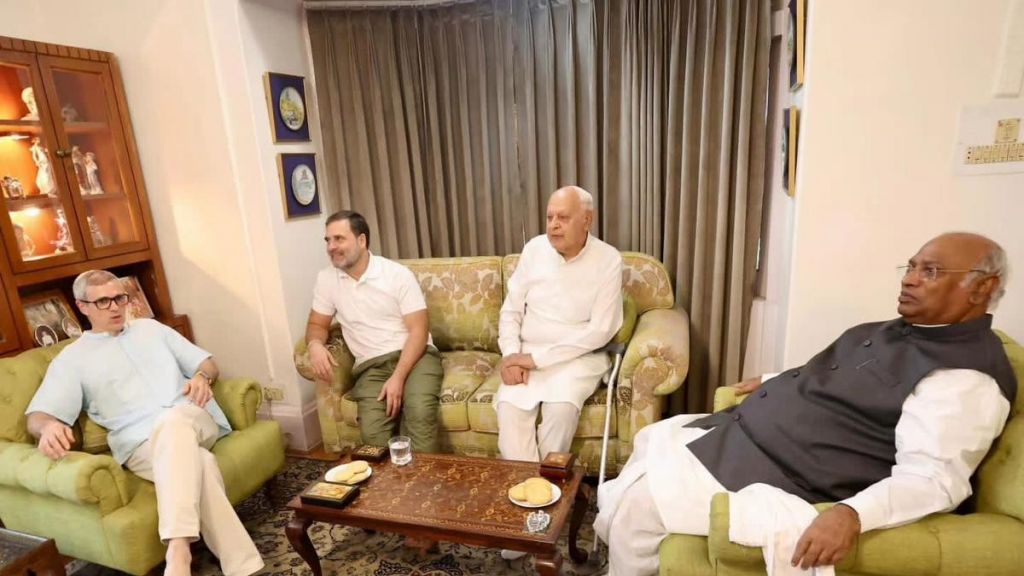
After a decade-long gap, Jammu and Kashmir witnessed its first assembly election since the abrogation of Article 370 in 2019. With counting still underway, the JKNC-Congress alliance is leading on 47 seats as of 3 PM, according to Election Commission data. If these numbers hold steady, the alliance is set to form the government in the Union Territory.
JKNC chief Farooq Abdullah has already announced that his son, Omar Abdullah, will become the next Chief Minister of J&K. This development marks a significant shift, with the JKNC-Congress coalition pushing aside the BJP, which secured 29 seats, down from the 25 it won in the 2014 elections.
#WATCH | Srinagar, J&K | National Conference chief Farooq Abdullah says, "After 10 years the people have given their mandate to us. We pray to Allah that we meet their expectations...It will not be 'police raj' here but 'logon ka raj' here. We will try to bring out the innocent… pic.twitter.com/j4uYowTij4
— ANI (@ANI) October 8, 2024
The BJP’s campaign, centered on development and the changes made after the scrapping of Article 370, failed to translate into significant electoral gains. Despite touting infrastructural and economic improvements, the party was unable to gain the trust of voters, especially in the Kashmir Valley, where it struggled to expand its presence. While the BJP did manage to make some headway in Jammu, it could not overcome the combined strength of the NC-Congress alliance.
Key Factors Behind NC-Congress Victory
Rejection of BJP’s 'Naya Kashmir' Vision
Despite heavy focus on post-Article 370 development, the BJP’s narrative of ‘Naya Kashmir’ failed to resonate with the majority of voters, particularly in the Valley.
Opposition to BJP's Hindu CM Push
The BJP's ambition to appoint a Hindu Chief Minister alienated Muslim voters, particularly in the Kashmir Valley, where the party hoped to improve its standing.
Backlash Against Security Measures
While the BJP’s tough security stance was appreciated by some, many Kashmiris saw the curfews, internet blackouts, and clampdowns on political dissent as repressive, deepening mistrust.
NC’s Connection with Rural Voters
The NC was successful in positioning the BJP as an outsider trying to erode Kashmiri identity. The removal of Article 370, seen by many Kashmiris as a safeguard for their unique status, became a focal point for the NC’s campaign.
Rahul Gandhi’s Bharat Jodo Yatra
The Bharat Jodo Yatra, which concluded in J&K, played a significant role in boosting Congress’s visibility and appeal. Some political analysts believe it had a notable impact on the election outcome, consolidating Congress’s support base.
The results indicate a clear rejection of the BJP’s policies in Jammu and Kashmir. The NC-Congress alliance’s lead reflects a broader desire among voters to return to local leadership that champions Kashmiri identity and opposes the central government’s handling of the region’s political landscape since 2019. As Omar Abdullah prepares to take on the role of Chief Minister, it remains to be seen how this new government will navigate the complex dynamics of a post-Article 370 J&K.